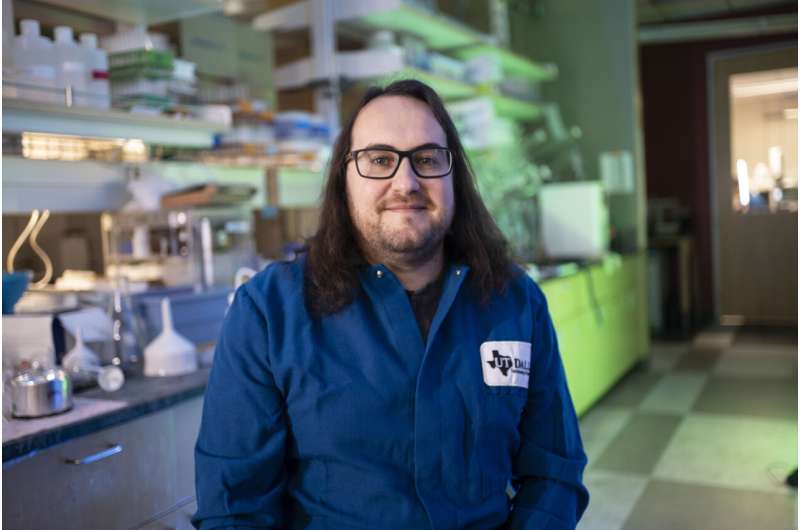Researchers at the University of Texas at Dallas have developed a revolutionary new chemical reaction that allows them to selectively synthesize the left-handed or right-handed versions of “mirror molecules” found in nature. These mirror molecules, known as enantiomers, have the same chemical properties but can have vastly different biological effects. This breakthrough could lead to the development of more effective and targeted medicines for a wide range of conditions, including cancer, infection, depression, and inflammation.

Revolutionizing Drug Discovery with Mirror Molecules
Naturally occurring compounds are a rich source of potential new medicines, but they often exist in such small quantities that it’s challenging for scientists and pharmaceutical companies to synthesize them on a larger scale for testing and production. The researchers at the University of Texas at Dallas have developed a groundbreaking chemical reaction that allows them to quickly, efficiently, and scalably produce pure samples of the left-handed or right-handed versions of these mirror molecules, known as enantiomers.
This is a critical breakthrough because while enantiomers have identical chemical properties, they can have vastly different biological effects in the human body. By selectively synthesizing the enantiomer with the desired therapeutic activity, researchers and drug developers can unlock new avenues for treating a wide range of conditions, from cancer and infections to depression and inflammation.
Harnessing the Power of Nature’s Molecular Masterpieces
The researchers focused their efforts on a class of natural products called polycyclic polyprenylated acylphloroglucinols (PPAPs), which are known to have a broad spectrum of bioactivity, including fighting cancer, HIV, Alzheimer’s disease, depression, epilepsy, and obesity. By developing a new chemical reaction that involves adding prenyl groups (molecules made of five carbon atoms) to these compounds, the team was able to quickly and efficiently synthesize pure enantiomers of eight different PPAP molecules, including nemorosonol, a compound derived from a Brazilian tree that has shown promising antibiotic properties.
The ability to selectively produce pure enantiomers is a game-changer for drug discovery and development. “Nature is the best synthetic chemist of all; she’s way ahead of us,” said Dr. Filippo Romiti, the lead researcher on the project. “This research represents a paradigm shift in the way we can now synthesize large quantities of biologically active molecules and test them for therapeutic activity.”
Unlocking New Frontiers in Medicinal Chemistry
The potential impact of this new chemical synthesis method is far-reaching. In addition to informing more efficient and cost-effective drug manufacturing processes, the findings will enable researchers to more easily create analogs of these natural products – optimized versions that are even more potent or selective in their biological effects.
The researchers have already demonstrated the versatility of their approach by synthesizing enantiomers of the PPAP compound nemorosonol and testing them against lung and breast cancer cell lines. Their results showed that one enantiomer had a significant anticancer effect, while the other did not. This kind of targeted insight into the specific biological activities of mirror molecules would have been impossible without the ability to produce pure enantiomeric samples.
Now, the researchers plan to apply their new chemical reaction to the synthesis of other classes of natural products, unlocking the potential for even more groundbreaking discoveries in the field of medicinal chemistry. “We now have access to potent natural products that we previously could not synthesize in the lab,” said Dr. Romiti. “This is a new tool for chemists and biologists to study 400 new drug leads that we can make, plus their analogs, and test their biological activity.”
